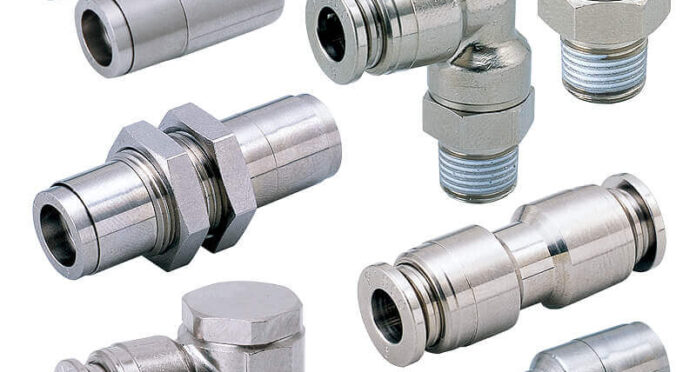Why Aluminum Alloy Is The Preferred Material In Machinery Manufacturing?
Aluminum alloy is one of the preferred materials in the machinery manufacturing industry. Thanks to its outstanding features such as light weight, high strength and corrosion resistance. Aluminum alloy is increasingly becoming the first choice. This article will explain why aluminum alloy is preferred in machinery manufacturing.
1. Light Weight, Easy to Process
One of the biggest advantages of aluminum alloys is their light weight. Aluminum has a low density of only about 2.7 g/cm³, which helps reduce the weight of machinery and equipment. This is extremely important in applications that require rapid movement or energy efficiency, such as in the aerospace, automotive, and electronics industries.
Aluminum alloys are also easy to work with. Alloys such as 6061 aluminum can be cut, turned, and welded easily. Manufacturing and repairing aluminum machinery saves time and money.
2. High Durability, Good Load-bearing Capacity
Despite its light weight, it still has impressive mechanical strength. Aluminum alloys can be reinforced with elements such as silicon, magnesium, copper and zinc, giving them superior mechanical strength compared to pure aluminum. This gives aluminum alloys good strength. Meets the requirements in industrial applications.
Popular aluminum alloys such as 6061 and 7075 can withstand great pressure. Even in industries that require very high strength such as industrial machinery manufacturing, automotive and aerospace.
3. Excellent Corrosion Resistance
Another advantage of aluminum alloys is their excellent resistance to corrosion. Aluminum naturally forms a thin oxide layer on its surface, which protects it from environmental factors such as air, water, and chemicals.
In harsh environments, such as in outdoor machinery manufacturing or oil and gas applications. Its corrosion resistance extends equipment life and reduces maintenance costs.

4. Good Thermal and Electrical Conductivity
Aluminum alloys have good thermal and electrical conductivity. This is very important in the machinery manufacturing industry, especially in electronic devices and cooling systems. With the ability to conduct heat quickly, aluminum alloys help reduce the temperature in electronic devices and machinery, helping to protect them from overheating.
In addition, aluminum is also an ideal material for parts that need to conduct electricity, such as in the manufacturing of electrical wires, motors, and electronic equipment.
5. Easy to Recycle and Environmentally Friendly
It is a material that can be completely recycled without losing quality. Recycling aluminum reduces waste and saves energy. The machine manufacturing industry is increasingly focused on sustainability, and aluminum fits the bill.
Using recycled aluminum helps reduce production costs and reduce negative impacts on the environment, especially in the current context when environmental protection is increasingly focused on.
6. Flexibility in Design
Highly flexible, allowing for the fabrication of machine parts in a variety of shapes. Can be easily molded, bent, stretched and shaped without loss of strength or stability.
With this flexibility, machine manufacturers can design parts with complex sizes and shapes without facing difficulties in machining. This reduces production time and saves costs.
7. Reduce Production Costs
Thanks to its light weight and easy machining, it helps to reduce the cost of machine manufacturing. In addition, the flexibility in design and corrosion resistance help to reduce the cost of maintenance and spare parts replacement.
Using aluminum alloys helps businesses save costs during the production and maintenance of equipment, while increasing economic efficiency.
8. Widely Used In Industries
Used in many different industries. In the automotive industry, aluminum helps reduce vehicle weight, save fuel and improve performance. In the aviation industry, aluminum is the main material for making aircraft parts, helping to reduce weight and increase safety.
Additionally, it is used in industries such as electronics, renewable energy, and construction, demonstrating its versatility in machine manufacturing.
Conclude
This is an ideal material for the machinery manufacturing industry thanks to its outstanding features. Such as light weight, high strength, corrosion resistance, good thermal and electrical conductivity. These properties help aluminum alloys not only meet technical requirements but also help save costs and improve production efficiency. With diverse applications in many industries. Aluminum alloys will certainly continue to be the priority choice in machinery manufacturing in the future.
Office: 276/9/54 Ma Lo, Binh Tri Dong A Ward, Binh Tan District, Ho Chi Minh City, Vietnam
Factory: 50A Ho Hoc Lam, An Lac Ward, Binh Tan District, Ho Chi Minh City, Vietnam
Tax code: 0318502548
Tel: (+84) 90377 8786 – (+84) 9033 88218
Email: dongson13@gmail.com


https://shorturl.fm/a0B2m